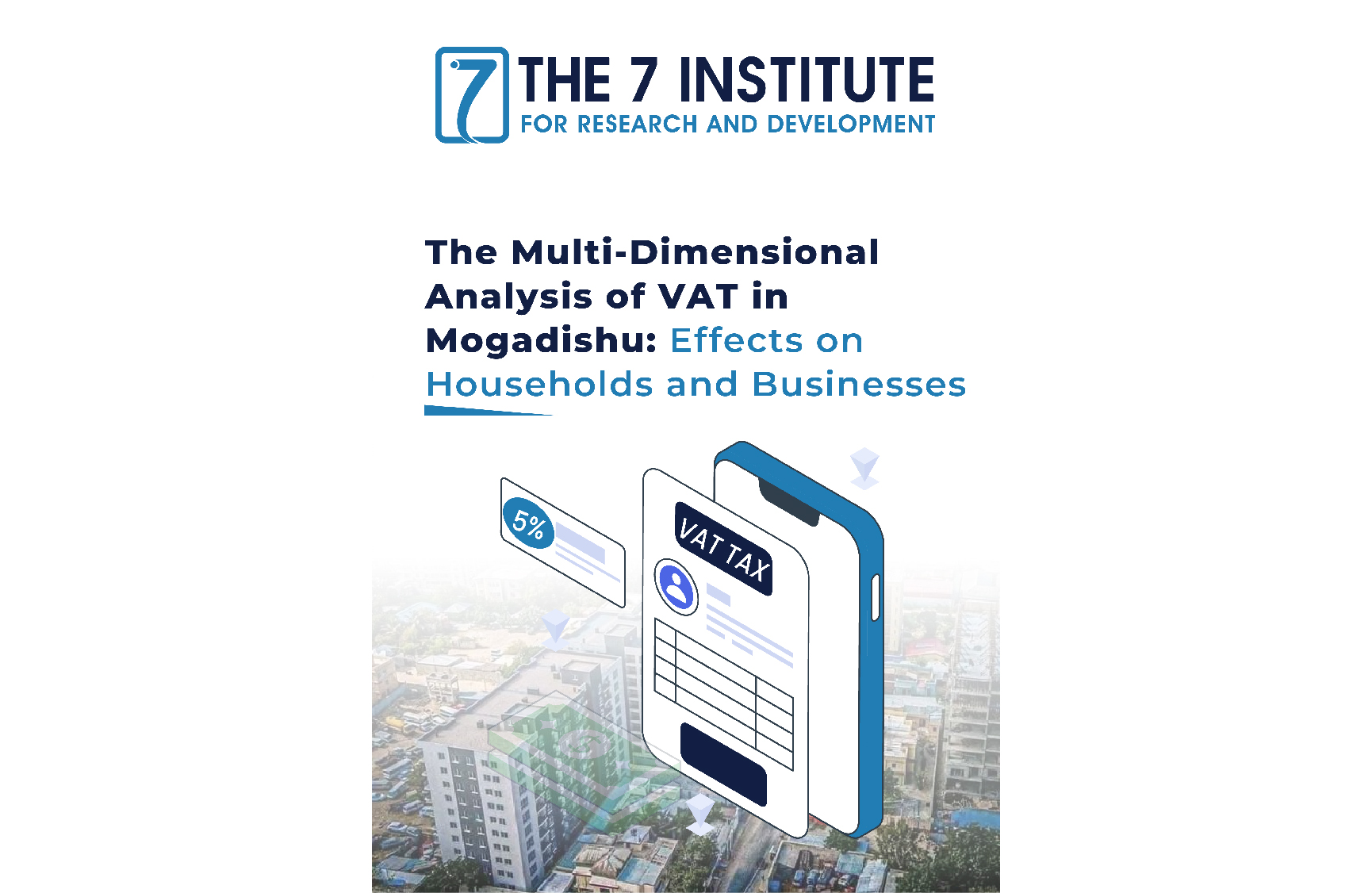
Somalia’s fiscal landscape has undergone significant changes over the past decade as it strives to rebuild its economy following decades of political instability and economic fragmentation. One of the most critical steps in this process was introducing the value added tax (VAT) system in Mogadishu in August 2024. The primary motivation behind the VAT policy was to enhance domestic revenue mobilization, reduce reliance on external aid, and create a sustainable funding source for public services and infrastructure development. However, implementing VAT in the fragile state of Somalia presents unique challenges, given the dominance of the informal economy, weak institutional capacity, and widespread poverty. Despite its potential to boost government revenue, the VAT system in Mogadishu has faced significant hurdles, including low compliance rates, widespread informality, and a lack of public trust in the tax system. This study examines the multi-dimensional impact of VAT on households and businesses in Mogadishu six months after its introduction. Using a mixedmethods approach, the research combines empirical surveys, secondary data analysis, and qualitative interviews with key stakeholders to assess the effects of VAT on household spending, business operations, compliance behavior, public perceptions, and the role of payment methods in tax avoidance.

